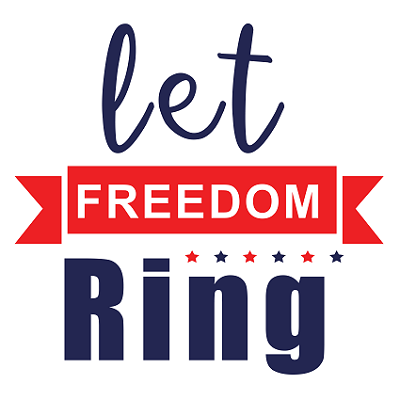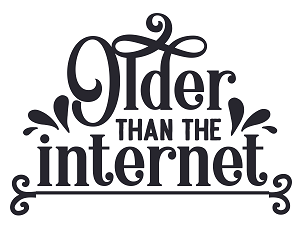 “Congress shall make no law respecting an establishment of religion, or prohibiting the free exercise thereof, or abridging the freedom of speech, or of the press, or the right of the people peaceably to assemble, and to petition the Government for a redress of grievances.”
“Congress shall make no law respecting an establishment of religion, or prohibiting the free exercise thereof, or abridging the freedom of speech, or of the press, or the right of the people peaceably to assemble, and to petition the Government for a redress of grievances.”
So, reads the First Amendment of the United States Constitution. The very foundation upon which our country was built.
At the time of its inception, this essential Amendment was intended to apply to Congress alone. However, since the turn of the twentieth century, it has become common to see the First Amendment as applicable to all forms of government including state and local. The Supreme Court’s decision to apply the Due Process Clause of the Fourteenth Amendment to the First Amendment cemented that interpretation within precedent.
A law – or Amendment as the case may be – is only effective if the people understand it. Knowing when and how the First Amendment applies is essential to being able to ensure that you are not trampling on the rights of others nor having your rights trampled upon.
“Congress shall make no law respecting an establishment of religion, or prohibiting the free exercise thereof,”
Two clauses define the first freedom protected by the First Amendment, religion. The first clause is the “establishment” clause. This prohibits the government from establishing an official religion or church of the nation. The second clause – the “free exercise clause” – allows people to worship if and how they see fit.
Often, people erroneously include the words “separation of church and state” when discussing the First Amendment. However, these words are not found anywhere in the Amendment or anywhere else in the United States Constitution. Thomas Jefferson first coined that phrase in a letter to a Baptist Church during his presidency.
Interestingly enough, although many often use the phrase as an argument against religious aspects being present at government buildings or within public schools, this is not even, close to how it was intended. In the 1802 letter, Jefferson assured a committee of the Danbury Baptist association in the state of Connecticut that the government would not interfere with their religious freedoms, in essence reiterating the First Amendment guarantees.
There have been many court cases throughout the years seeking the limitations and boundaries of this freedom. They include cases regarding the denial of aid to parochial schools, the restriction of poisonous snakes and illegal drug use in religious rites, prayer in public school, the banning of polygamy (having multiple spouses), and the limiting of one’s right to refuse medical treatment based solely on religious reasons.
“… or abridging the freedom of speech, or of the press,…”
Upholding this freedom often leads to conflict with other rights and liberties granted elsewhere in the Constitution and its Bill of Rights. The basic principle for deciding the limits of free speech is known as the “clear and present danger” test.
Set by Schenck vs. the United States in 1919, this principle establishes that free speech would not be protected if it poses a clear and present danger to national security. In the case, Charles Schenck – and antiwar activist – was arrested for sending prospective army draftees leaflets encouraging them to ignore their draft notices. While the First Amendment guarantees the right to freedom of speech, in this case the Supreme Court agreed that Schenck’s actions posed an obvious (clear) and immediate (present) threat to national security by undermining the effort to assemble a military force adequate for the situation at hand.
The courts have identified three types of free speech. Each type of free speech is then protected at different levels that are deemed appropriate for that type.
The first and best protected type of speech identified by the courts is Pure Speech. This is the verbal expression of thoughts and opinions before a voluntary audience. Generally, the courts have provided the strong protection of Pure Speech from government regulation.
Second is Speech – plus. As well as words, this form of free speech includes actions such as demonstrating or protesting. This form of free speech is generally not as strictly protected as Pure Speech because the actions can be physically dangerous. In the process of defining the limitations of this form of free speech, the courts have ruled that demonstrators may not endanger public safety, obstruct traffic, or trespass illegally.
The third and final type of free speech identified by the courts is symbolic speech. Technically, this involves no speech at all, but rather symbols that the courts have deemed to be forms of free expression. Wearing black arm bands or love beads, burning of draft cards, bras, and flags all fall into this category as symbolic actions.
Symbolic speech has often been highly controversial, and the courts have – as a rule – considered it to be beyond the limits of free speech. However, in the 1989 Texas vs. Johnson decision the Supreme Court upheld the right of an individual to burn an American flag as a form of free speech.
Many of the same principles that apply to the free speech of individual citizens also apply to the freedoms afforded the press. One concept that is exclusive to the freedom of the press is that of prior restraint. A prior restraint is a government action that prohibits speech or other expression before it can take place.
There are two common forms of prior restraints. The first is a statute or regulation that requires a speaker to acquire a permit or license before speaking, and the second is a judicial injunction that prohibits certain speech. Both types of prior restraint are strongly disfavored and generally unconstitutional. Courts have ruled however, that in extreme cases of national security prior restraint can be allowed.
“… or the right of people peaceably to assemble, and to petition the Government for a redress of grievances.”
Former Chief Justice Charles Evans Hughes once wrote, “Peaceable assembly for lawful discussion cannot be made a crime.”
However, the courts have often had to rule in cases where the right of one group to assemble peaceably infringed upon the rights of other citizens and are therefore deemed criminal. Assemblies cannot disrupt traffic flow, public order, freedom to go about normal business, or disturbing the peace and quiet.
To avoid such instances, it is common practice for groups to need a permit to assemble. The government is required to grant that permit as long as officials have a means to prevent major disruptions.
Thomas Jefferson once said that the truest sign of patriotism is dissent. This would not be possible without the right “to petition the government for a redress of grievances” guaranteed by the First Amendment.
It is up to the people of this country to hold the government accountable. If there is a problem, then there should be an avenue to pursue a rectification of that problem. Thanks to the final right granted by the First Amendment, United States citizens have that avenue.
The American voter’s first and most effective way to have their voices heard on subjects concerning their government is through their vote. By voting for or against certain proposals and candidates, the American people can affect their will on the way they are governed.
Beyond that is the freedom to circulate a petition to demonstrate that a topic has the backing of the people. Further, citizens are free to write, call, or email their government officials with any concerns they have.
Why does it Matter?
The United States has always been a melting pot. Not only of cultures, but of religions as well. People from every corner of the world and every possible religion and belief system have come together in this one country.
As there are five main areas of freedom granted through the First Amendment, there are also (at least) five reasons to protect those freedoms.
1 – The Freedom of Religion
One has only to look at regions where people are not allowed to choose how and what they worship as well as whether or not they wish to worship at all to see that there is something missing. There is a constant state of unrest in these areas. It is simply the nature of humans as rational beings to form their own belief system.
Coercion is the opposite of belief and thought and cannot therefore, ever be the basis for a true belief. Furthermore, it is impossible to impose a change to a belief through external laws. At best, this kind of heavy handed control is only effective until the threat is removed.
Once the rights guaranteed to one group through the First Amendment are taken away without an outcry, others will be soon to follow. Either every American’s rights are protected by the Constitution and its Bill of Rights or no American’s are.
2 – The Freedom of Speech
In the Union of Soviet Socialist Republics (U.S.S.R.), it was not uncommon for those who spoke out against the government – even in the privacy of their own homes – to be arrested for sedition. The era of Hitler’s Germany saw similar arrests and more often than not, those led to more arrests as “traitors” were broken into giving up the names of their comrades.
Sedition is conduct or speech inciting people to rebel against the authority of a state or monarch. It is a crime here in the United States as well. However, simply voicing dissatisfaction with one’s government is not sedition. Further, it is protected by the First Amendment.
While there are limitations to the freedoms of speech granted by the First Amendment, they are limits of reason and not to undermine the strength of the citizenry. Areas such as commercial speech, political speech, libel, slander, and obscenity are examples of concepts of free speech that have been limited. Not to cripple the freedom of the citizens but rather to protect the freedoms of ALL citizens.
3 – The Freedom of the Press
One of the first things that Adolf Hitler did when he began his campaign to control Germany and eventually the world was to cripple the press. With newspapers only allowed to print the facts as Hitler saw them the people of Germany were left largely uninformed. If anyone dared to speak out against him, they were either jailed or killed as a traitor.
THIS is what happens when the press is not free to report a story in their way.
During the current climate of “fake news” claims, many seem to have forgotten that it is the prerogative of those news sources to report whatever they like as the truth. It is also the citizen’s right to ask questions and look for answers on their own, not to rely on news sources that have a financial benefit of portraying certain political angles.
The freedom of new sources to report on stories without fear of government interference is essential to having an informed populace. Thus, the people of the United States can hold their government accountable when it steps beyond the boundaries that the Constitution sets for it.
4 – The Right of People the Peaceably Assemble
Whether it is Christians hiding from Roman persecution in the early years of AD or American revolutionists meeting in secret to discuss their dreams for their new land, the right of people to peaceably assemble is necessary for any self-governing populace.
The free exchange of ideas among likeminded people and the sharing of ideals with the uninitiated is how factions grow and change throughout time. The formation of an assembly can be interpreted as citizens gathering and unifying for the purpose of communicating their views or opinions on national issues and for the sharing of Information from one to another.
Without this simple freedom, no gathering of people no matter how small or innocuous would be safe if the government decided to stop it. Further, it would be nearly impossible to guarantee the citizen the other freedoms granted to them in the Constitution and Bill of Rights without allowing them to assemble and express their ideals.
5 – The Right of the People to Petition the Government for Redress of Grievances
A government by the people and for the people cannot stand without this freedom. There can be no form of democratic government – republic or otherwise – that does not afford its population with the right to air grievances with the government.
There would be no point in affording the people any rights if they were not allowed to petition the government when those rights were being violated. This gives citizens the opportunity to address their government on issues that have relevance and importance not only to the individual, but also to the community as a whole.
Wrapping It Up
The historical basis of the freedom of religion originated with the settlers and colonists who came to the New World to escape the European Wars of Religion and the oppression of the Church of England within the British government. Others have continued to pour into this country seeking that same freedom.
Without the freedoms offered by the First Amendment’s religion clauses the United States government would be free to demand all of its citizens worship the ideals that they put forward. With the rapidly shifting ideals of the modern world, it could feasibly be a new “religion” every couple of years. Freedom to worship as you see fit, or even if you see fit, is essential to humans as rational beings.
The freedom to say what one believes without fear of persecution is a cornerstone of a free society. While we may continue to be divided and have disagreements on our most basic beliefs, it is the right to have those disagreements and voice those beliefs that sets us apart as a nation.
Having a news media that is free to report not just the good but the bad and the ugly as well is essential to an informed populace. This of course is essential to a government that works for the people.
The right to gather together and to petition the government are the logical next steps after ensuring that the people’s basic human rights and freedoms are honored and respected. They seem to flow naturally from the assurance of the right to believe how you choose and express that belief.
The First Amendment protects the essence of human nature as rational and thinking beings and any attempt to limit that freedom is an attack on human dignity.


